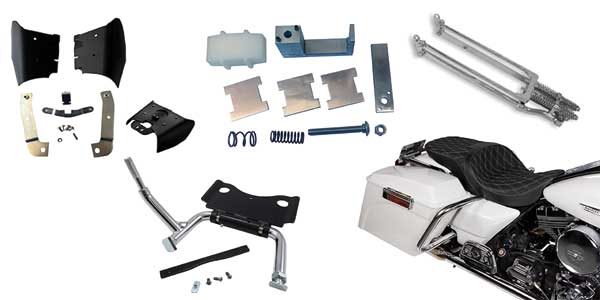In the last couple of columns we have talked about what you can do when people don’t perform to your standards. Specifically, we covered the actions you can take when there are skill issues, and we talked about the people who couldn’t accomplish a designated task if their lives depended on it (November 2006). Last month we looked at the "logic" of non-performance. This month we delve into additional ways to work through the issue of non-performance.
Maybe, just maybe, it isn’t all the employees’ fault? Management needs to look at improving performance every bit as much as the guys in the trenches at your dealership. Are you sending the right message?
Mixed Messages?
Sometimes management sends mixed messages. Ask yourself if your directives are logical on all counts.
Management encourages salespeople to pass their prospects off to other profit centers, but the salesperson’s natural inclination is to keep the interaction alive until the sale is made. Salespeople defend their turf with statements like, "He doesn’t want any of that stuff right now."
Management reinforces this salesperson’s reluctance by rewarding them with motorcycle commissions. Wouldn’t it be better to pay the sales reps for package deals rather than single bike sales? Still, there are some people who wear non-performance as a badge of honor.
Bob Mager has an extreme example. He talks about an incident in an African diamond mine where workers would not wear their earplugs despite the fact that everyone who didn’t was destined to go deaf.
Employees knew how to wear the earplugs, they knew the importance of wearing them, but no amount or training or exhortation could get them to wear their earplugs.
Why?
Management learned that employees considered deafness a status symbol! Residents of local communities knew jobs in diamond mines were hard to get and those who landed them were very well paid. If you were deaf, you had prestige; your neighbors knew you worked in the mines!
We see the non-performers in our dealerships, too. As individuals they may be:
- The salesperson who takes the most deposits … despite the fact that the deals fall through.
- The business manager who has a high number of charge-backs — or doesn’t use waiver forms.
- The technician who has too many comebacks.
As groups, they may be:
- The sales team that doesn’t fill out the floor traffic log or make prospecting calls.
- The parts department and apparel group that don’t track lost sales.
- The service technicians that don’t keep their service bays clean.
Ask Yourself
It is pretty easy to identify these non-performers, the question becomes what are you going to do about it? First, ask yourself if the performance really matters. If it does, how do you convince them that these tasks have value?
- Do you inspect what you expect?
- Do you strategize with your people in an attempt to discover best ways of managing specific tasks?
- Do you ask them to share best methods with others?
You need to water the performance you want to grow. Make sure they know their performance matters. Remember the example of family and remember the importance of your attention.
- As a regular part of your routine, set time to invite the key performer into your office. Sit down and review the log or the lost sales tracking sheet.
- Blow through the service department at the end of the day and compliment those who have an organized area.
Mind Reading Doesn’t Work!
Ask yourself if there are obstacles to performance? Any time people avoid doing what’s expected or requested, you have an obstacle. But sometimes people don’t know what’s expected of them.
Mind reading doesn’t work. If you are looking for a specific task to be completed or a certain performance level to be met, sometimes all you have to do is ask.
Take the case of the manager who thinks he has a training problem. He wants his parts people to call special order customers more quickly.
Right now they are called weekly; he wants to have them called immediately because special orders take up space and hold up cash flow.
He says, "We need to train them to be more conscientious." But do they really need more training?
When asked what would prevent them from calling special order customers immediately, the parts people reply, "Nothing. Would you like us to do that? No problem!"
Sometimes employees are afraid of asking dumb questions.
We probably all know of dealerships that have attempted to implement standardized processes in terms of spread sheets or software — only to be met with initial resistance from some employees.
Ultimately management finds out that it wasn’t that they disagreed with the idea or the technique — they just felt awkward about asking questions when co-workers appeared to understand.
Digging A Deeper Hole
Sometimes stale guidelines impede performance. When you see an obstacle, all you have to do is dig a little further. You may find yourself asking dealership personnel "why do you do it this way?" The answer is usually, "Because this is how it has always been done."
Let’s use accessory salespeople for this example. When working behind the counter, they usually have to balance their inventory, finesse the display, work with customers and answer the phone. In many cases the phone could be answered by someone else.
At other times a caller will ask the receptionist to speak to Parts. The receptionist can see the parts counter is swarming with customers, but she dutifully complies.
The parts person, swamped, picks up the phone and hears a customer ask, "Are you open late on Monday?" The receptionist could have easily answered this question, but management guidelines have created an obstacle that impedes performance.
It is illogical to follow tired old rules and expect different results. In fact, that is the clinical definition of insanity!
Menu Selling?
Sometimes the problem is a lack of essential technology. It’s important to have the right computer, right Internet access and right software. If you don’t have these things, you’ll find there is a way around every example.
One of my favorite examples is a dealer who wanted to use menu selling but didn’t have Microsoft Excel. He discovered his sister store had a computer with Excel. He had his employee call that store and provide the necessary information. It was entered by the employee at the other store, printed and faxed back.
Tenacious. Relentless. Unstoppable. These are descriptors for this type of person. Are you or the lack of technological tools impeding their progress rather than the other way around?
When you dangle a carrot, make sure it’s a carrot your employees want.
I know of a department head who tried to spur his team on to higher performance by promising dinner with him and his wife! No joke.
Just about every single person in that department would have preferred a frontal lobotomy. And, you guessed it, nobody hit their goal. Not even close!
The lesson here is that the reward must be important to the employee — not you.
Skill Versus Will?
Back in November we covered performance hampered by skill issues; this time we have covered performance hampered by will issues.
I have given you some quick situations and scenarios where performance has been hampered due to lack of compliance. You can probably think of many others.
Unfortunately your performance problems won’t always fall neatly into an established category. Sometimes they will arise in one manner and morph to become something else. This is why managing others can be so difficult.
View each task from your employee’s perspective. This is called empathy.
By understanding the punishment factor, compromising where appropriate and remembering to provide the attention, direction and guidance they need, you should be able to work past performance problems.
Most people show up at work wanting to do a great job.
If you can convince them that their lives will be improved by doing as you ask, you will enjoy the performance you seek.














